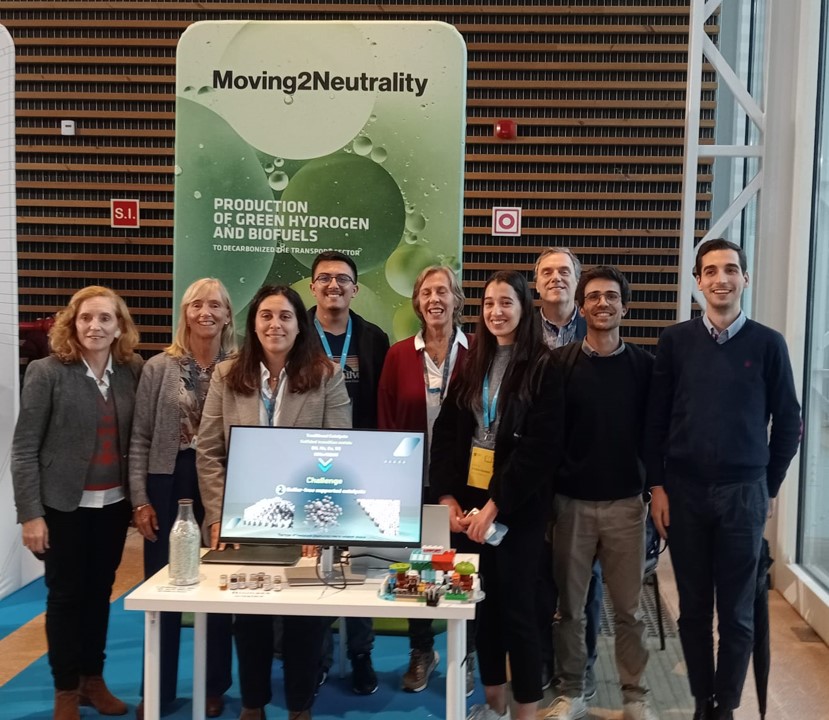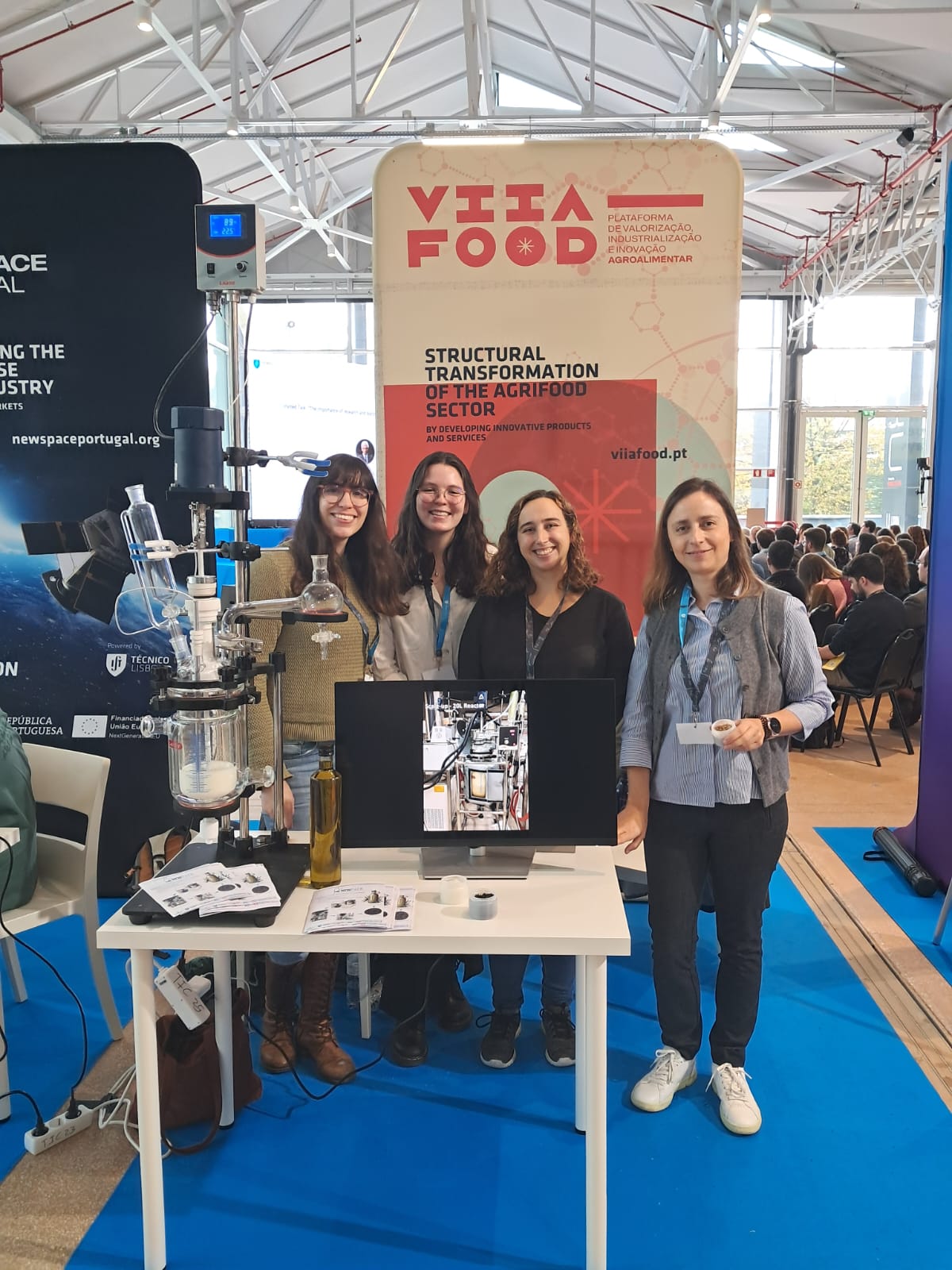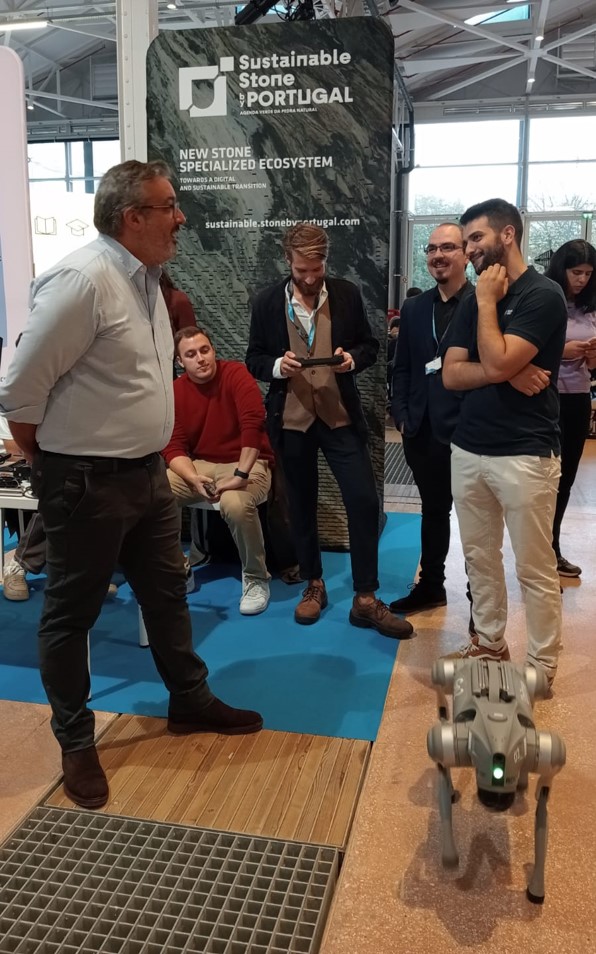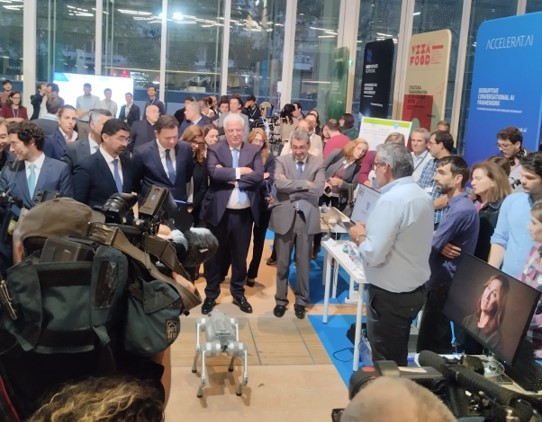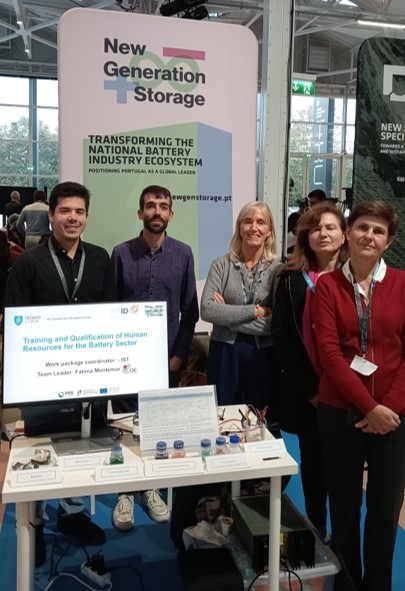Earlier this week, the Técnico Innovation Center hosted the first edition of the Técnico Innovation Summit, an event held as part of the 10th edition of the PhD Open Days. The summit offered a glimpse into the future of sustainable innovation. Four impactful research projects funded by Portugal’s Recovery and Resilience Plan (PRR - Recuperar Portugal). to which CERENA researchers are contributing.
Sustainable Packaging with Biodegradable Polymers
One of the standout projects highlighted at the summit is focused on sustainable packaging solutions for the agri-food sector. As part of the VIIAFOOD Agenda, CERENA researchers are working on the development of biodegradable polymers designed for packaging of olive oil. These materials are made from natural raw materials, and represent a crucial step toward reducing plastic waste in the food industry. This initiative is a key part of Portugal’s broader effort to transition the agri-food sector to more sustainable practices.
AI and Drone Imaging for Sustainable Stone Production
Another exciting project aims to revolutionize the ornamental stone industry by reducing its environmental impact. Under the Sustainable Stone by Portugal Agenda, researchers are using artificial intelligence and drone imaging technology to create virtual 3D models of natural stone blocks early in the industrial processing stage. This allows for more efficient use of raw materials, reducing waste and CO2 emissions. Collaborating with the Instituto Politécnico de Santarém and IDMEC, alongside many industrial partners the team is developing deep learning algorithms to optimize stone extraction, supporting both sustainability and the competitiveness of Portugal’s stone industry.
Sustainable Fuels for a Carbon-Neutral Future
As part of the Moving2Neutrality Agenda (M2N), CERENA researchers are contributing to the energy transition in transportation by developing sustainable aviation fuels. In support of the energy transition in transportation, the M2N Agenda focuses on developing sustainable fuels to achieve carbon neutrality. CERENA hosts two research groups: one working on green ammonia production at an industrial scale, and the other on developing green fuels for air and maritime transport from alternative, non-fossil raw materials. By collaborating with the Centro de Química Estrutural (CQE), these efforts aim to significantly reduce carbon emissions from some of the most energy-intensive sectors.
Recycling and Reusing Materials for Sustainable Batteries
In line with the European Union's energy transition goals, which include fully electric mobility by 2035, CERENA researchers are involved in Work Pacage 2 of the New Generation Storage Innovation Pact. The goal of the project is creating a circular battery economy, from recycling used batteries and reusing critical materials such as lithium. CERENA's contributing with our expertise in the leaching and extraction techniques: researchers are working to recover valuable materials for the production of "second hand" batteries, helping to ensure that the growing demand for electric vehicles doesn’t lead to increased resource depletion. Partners in this project include CQE and LNEG (National Laboratory of Energy and Geology).
The Importance of Publicly Funded Research
A group of ministers, along with the Prime Minister of Portugal, visited the event to learn about the latest advancements in publicly funded research. This engagement underscores the importance of continued investment in science and innovation, with the potential to drive positive change across Portugal and beyond. As these projects demonstrate, when science receives the necessary funding and support, the future looks brighter and greener for all. By tackling global challenges with innovative solutions, CERENA and its partners are contributing to meet the UN Sustainable Development Goals for a more resilient world.


